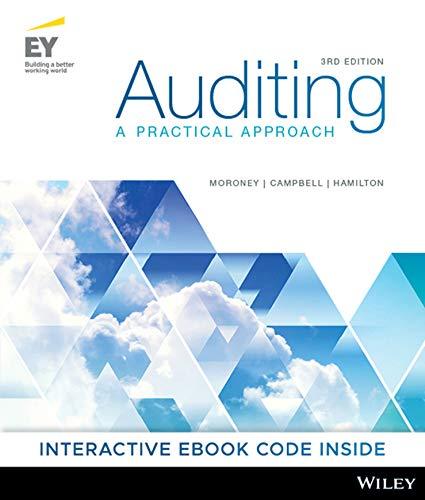Riley and Rosie are discussing the audit plan for a large manufacturing company. The company has two
Question:
Riley and Rosie are discussing the audit plan for a large manufacturing company. The company has two main manufacturing plants plus several warehouse and distribution centres (one in each state). The company has a large investment in trade receivables and there are additional concerns this year about whether the tough economic conditions have affected the collectability of the debts. The agenda for the board of directors’ monthly meeting includes an item to discuss the effect of the economic crisis on customers. The board is also negotiating a takeover with a competing company. The discussions have been ongoing for some time and one month before year-end the board of the other company indicated it would like more progress to be made on this deal.
Riley and Rosie are reviewing the draft plan to ensure that adequate procedures are included to meet their obligations for detecting subsequent events during the period from year-end to the date of signing the audit report. Riley is the engagement partner on the audit and Rosie is an audit manager. Rosie admits to Riley that she has always had trouble distinguishing the two types of subsequent events in AASB 110 and therefore has some trouble applying ASA 560. She also admits to Riley that she has never been involved in an audit where there was a subsequent event arising after the date of the audit report, so she doesn’t know what the auditor is supposed to do in these circumstances.
Required
(a) Explain the difference between the two types of subsequent events. Give an example of each and explain the type of adjustment (if any) that would be required to the financial report or each.
(b) List some audit procedures that should be in the audit plan for this company for the detection of subsequent events occurring prior to the date of the audit report.
(c) Explain the auditor’s responsibilities for subsequent events that arise after the date of the audit report (either before or after the date the financial report is issued). What is the difference in the auditor’s responsibilities between these events and those arising before the date of the audit report?
Step by Step Answer:

Auditing A Practical Approach
ISBN: 9780730364573
3rd Edition
Authors: Robyn Moroney, Fiona Campbell, Jane Hamilton





